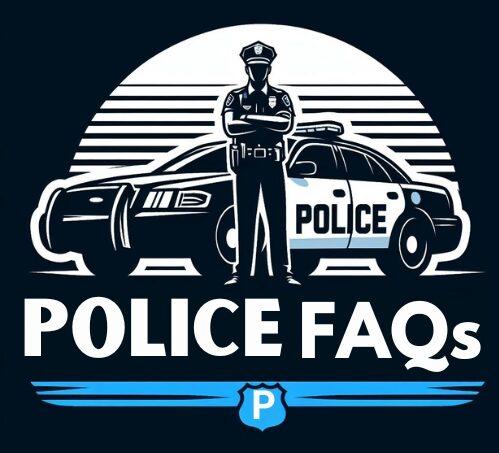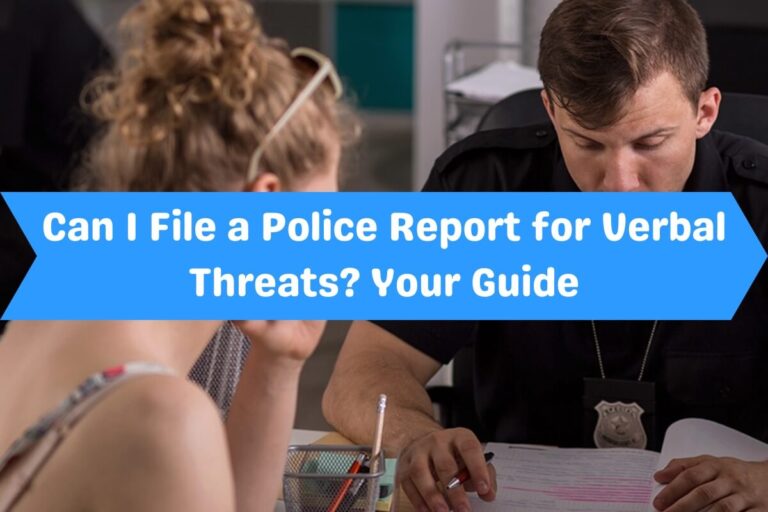Can Police Remove Squatters? Here’s What You Need to Know

Have you ever found unauthorized individuals occupying your property? Dealing with squatters can be a frustrating and stressful situation for any property owner. One of the most common questions that arise is: Can police remove squatters from your property?
In this comprehensive guide, we’ll dive deep into the legal complexities surrounding squatters and the role of law enforcement in such situations. We’ll explore when police can physically remove squatters, the eviction process, squatters’ rights, prevention strategies, and much more.
Understanding Squatters: Definition and Legal Implications
Before we delve into the specifics of police involvement, it’s crucial to understand what constitutes a squatter and the legal implications associated with their presence on your property.
What is a Squatter?
A squatter is an individual who occupies a property or residence without the owner’s permission or legal rights. They may have entered the property illegally, or they may have initially had permission to be there but overstayed their welcome.
Differentiating Squatters from Trespassers
While the terms “squatter” and “trespasser” are sometimes used interchangeably, there is a legal distinction between the two:
- Trespassers are individuals who enter a property without permission, typically for a short period of time and without the intention of establishing residency.
- Squatters, on the other hand, aim to occupy the property for an extended period and may attempt to claim legal rights or ownership over time.
Legal Rights and Protections for Squatters
Contrary to popular belief, squatters do have certain legal rights and protections in some circumstances. These rights vary depending on the state and the specific situation, but they generally revolve around the concept of “adverse possession.”
Adverse possession, also known as “squatters’ rights,” is a legal principle that allows a squatter to claim ownership of a property if they have occupied it continuously and openly for a specified period of time, typically ranging from 5 to 30 years, depending on the state.
The Role of Law Enforcement in Squatting Incidents
When it comes to dealing with squatters, the role of law enforcement is often limited, and their involvement is subject to specific circumstances and legal procedures.

When Can Police Physically Remove Squatters Without a Court Order?
In certain situations, police can physically remove squatters from a property without a court order. However, these circumstances are relatively rare and depend on various factors, such as:
- Recently Vacated Properties: If squatters have moved into a property very recently after it was vacated (typically within 48-72 hours), police may treat them as criminal trespassers and remove them without allowing them to establish squatters’ rights.
- Owner Consent: If the property owner provides documentation, such as a “No Trespassing” order, proving that they did not consent to the squatters’ presence, police may be authorized to remove them as trespassers.
- Abandoned Properties: For properties that pose health or safety risks, police may have the authority to remove squatters under public nuisance laws without an eviction process.
- Rental Properties: If squatters move into a rental unit that is still under a valid lease agreement with another tenant, police can remove them as criminal trespassers since the leaseholder maintains exclusive rights to occupancy.
- Dangerous Conduct: Police officers can immediately remove squatters engaged in illegal or dangerous activities, such as drug dealing, gang activity, or violence, without awaiting formal eviction.
Situations Where Police Intervention is Limited
In many cases, however, police may decline to forcibly remove squatters right away due to various reasons:
- Established Occupancy: If squatters have established residency by living at the property for an extended period, police cannot remove them until the owner completes a formal civil eviction process and obtains a court order for removal.
- No Proof of Trespassing: If the property owner cannot provide police with proper documentation, such as a “No Trespassing” order, lease agreement, or proof of recent vacancy, the police may not have the authority to treat the squatters as criminal trespassers.
- Risk of Violence: Police can decline to remove squatters if there are concerns about potential violence or harm to officers or the squatters themselves during the removal process.
- Health Risks: In cases where the property has become extremely unsanitary, police may decline to remove squatters due to health hazards and instead direct the owner to go through a civil eviction process.
- COVID-19 Restrictions: During the COVID-19 pandemic, some jurisdictions placed temporary limits on law enforcement physically removing people from residences due to the risks of virus transmission.
Procedures for Involving Law Enforcement in Eviction
If the police determine that the individuals on your property should be treated as squatters rather than trespassers, you will need to initiate a formal eviction process through the civil court system. Here’s a general overview of the steps involved:
- Call the Police and Establish Ownership: Contact the police to report the presence of squatters on your property. Be prepared to provide proof of ownership or documentation showing your legal rights to the property.
- Serve an Eviction Notice: If the police confirm that the individuals are squatters, you will need to serve them with an official eviction notice, which typically requires them to vacate the premises within a specified timeframe (often 5-30 days, depending on your state’s laws).
- File an Eviction Lawsuit: If the squatters refuse to leave after receiving the eviction notice, you will need to file an eviction lawsuit in your local civil court.
- Attend the Court Hearing and Obtain a Judgment: Present your case and evidence during the court hearing. If the judge rules in your favor, you will be granted an eviction order or judgment.
- Have the Squatter Removed by Law Enforcement: With a court order in hand, you can involve the police or local law enforcement to legally remove the squatters from your property and enforce the eviction.
It’s important to note that the specific procedures and timelines may vary depending on your state and local laws, so it’s always advisable to consult with a qualified attorney or legal professional for guidance.
Navigating the Eviction Process for Squatters
While the eviction process for squatters follows a similar path as evicting traditional tenants, there are some unique considerations to keep in mind.
Step 1: Calling the Police and Establishing Ownership
The first step in dealing with squatters is to contact the police and report the situation. When the police arrive, they will likely want to see proof that you are the rightful owner or have legal rights to the property.
Be prepared to provide documentation such as:
- Deed or title to the property
- Lease agreements or rental contracts
- Utility bills or other records showing your connection to the property
The police will also need to determine if the individuals on your property should be treated as squatters or trespassers. This may involve questioning the individuals and gathering information about their presence on the property and any claims they may make regarding their right to be there.
Step 2: Serving an Eviction Notice
If the police confirm that the individuals are squatters, you will need to serve them with an official eviction notice. This notice typically includes the following information:
- Your name and contact information as the property owner or authorized representative
- The address of the property in question
- A clear statement that the squatters are required to vacate the premises
- The specific date by which the squatters must leave the property (often 5-30 days, depending on your state’s laws)
- Any other relevant information or legal citations required by your state’s laws
It’s crucial to follow your state’s specific requirements for serving the eviction notice, as failure to do so may invalidate the notice and delay the eviction process.
Step 3: Filing an Eviction Lawsuit
If the squatters do not voluntarily leave the property after being served with the eviction notice, you will need to file an eviction lawsuit in your local civil court. This process typically involves:
- Preparing and submitting the appropriate legal paperwork, such as a complaint or petition for eviction
- Providing evidence of your ownership or legal rights to the property
- Documenting the squatters’ refusal to vacate the premises after receiving the eviction notice
- Paying any required court fees or filing costs
During this stage, it’s advisable to consult with a qualified attorney or legal professional who can guide you through the specific procedures and requirements in your jurisdiction.
Step 4: Attending the Court Hearing and Obtaining a Judgment
After filing the eviction lawsuit, you will be scheduled for a court hearing. At this hearing, you (or your legal representative) will need to present your case and any supporting evidence to the judge.
The squatters will also have the opportunity to present their side
Can Police Remove Squatters? The Key Facts
Finding unauthorized people living on your property is never easy. A common question many property owners have is: Can police actually remove squatters?
This guide covers the legal details around squatters and law enforcement involvement. We’ll explain when officers can physically remove squatters, the eviction process, squatters’ rights, prevention tips, and more.
Understanding Squatters and Legal Implications
A squatter is someone who occupies a property without the owner’s permission or legal rights. They may have entered illegally or overstayed their welcome.
Squatters are different from trespassers. Trespassers enter without permission but only for a short time, not to establish residency. Squatters aim to live at the property long-term and may try to claim ownership rights over time.
Squatters do have certain legal protections in some situations. The concept of “adverse possession” allows a squatter to potentially claim ownership if they openly occupy a property continuously for a state’s specified time period, often 5-30 years.
The Role of Law Enforcement
Police involvement with squatters is often limited and depends on specific circumstances. Officers can physically remove squatters without a court order in rare cases, such as:
- Recently vacated properties (usually within 48-72 hours)
- The owner provides a no-trespassing order
- Abandoned properties posing health/safety risks
- Squatters in a rental unit with an existing tenant’s lease
- Squatters engaged in dangerous/illegal activities
However, police frequently cannot immediately remove established squatter residents. Reasons include lack of proof they’re trespassing, risk of violence, health hazards on the property, or COVID-19 restrictions.
If treated as squatters, the eviction process requires property owners to serve notice, file a lawsuit, attend a hearing, obtain a judgment, and then allow police to enforce the court-ordered eviction.
Conclusion
Dealing with squatters on your property requires following proper legal channels. While police involvement is possible in limited cases, owners often must go through formal eviction proceedings. This involves serving notices, filing suit, and allowing law enforcement to carry out court-ordered removal. Attempting self-eviction can lead to legal troubles, so it’s best to consult legal experts.






